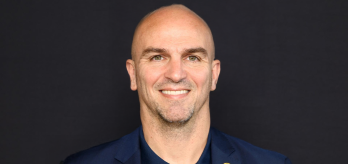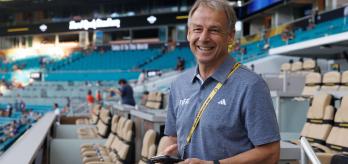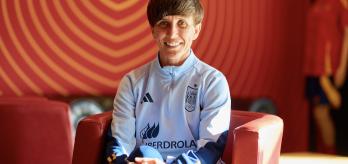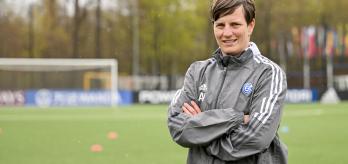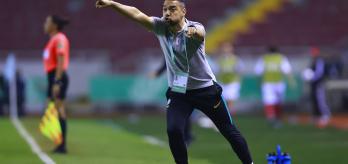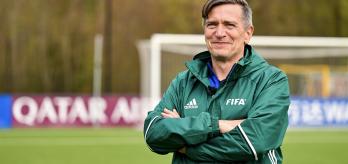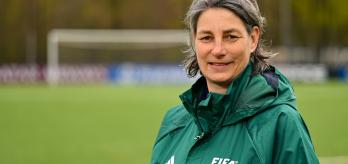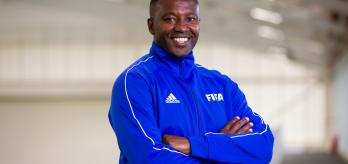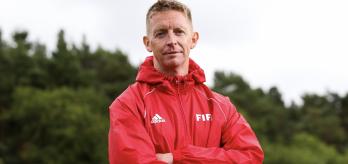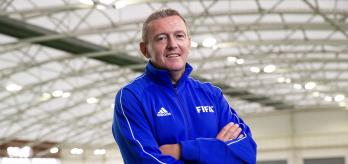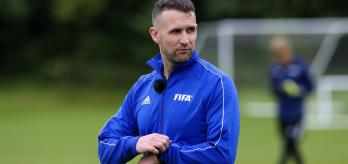A clinical finisher, with a keen eye for movement and timing, Klinsmann starred for Germany in three FIFA World Cup™ competitions – lifting the coveted prize in 1990 – and enjoyed success at some of the biggest clubs in Europe, including FC Bayern München, FC Internazionale Milano and Tottenham Hotspur FC. In this interview with the FIFA Training Centre, Klinsmann looks back at his prestigious career, sharing insights that shed light on how to coach number 9s, from the mental and technical demands of the role to the mindset required to score goals.
Key points
-
Klinsmann stresses the importance of physical and mental toughness as key traits for strikers, with the ability to withstand gruelling battles against defenders and reset after missing chances.
-
He notes that chemistry between strikers and their team-mates is the foundation for a number 9’s success in front of goal.
-
Klinsmann believes that repetition and individual training are vital for a number 9 to build confidence on the pitch, regardless of their age or level of experience.
Watch interview
Read summary
Part 1: The art of being a number 9
Reflecting on his playing days leading the line, Klinsmann describes the role of a number 9 as one that is instinctive and demanding, shaped by forming partnerships, good timing and a relentless hunger for goals. He discusses the need for a number 9 to be resilient physically and mentally, being ready to engage in tough battles with defenders and able to recover quickly after a missed opportunity. Additionally, the German provides tips for strikers who are suffering a goal drought and for coaches with a centre-forward going through a rough patch, citing repetition in training as a fundamental antidote to a barren run of form. Furthermore, Klinsmann notes that success in front of goal relies heavily on team-mates, using examples like Harry Kane, Kylian Mbappé and Robert Lewandowski to highlight players who are fed in different ways due to their contrasting player profiles. Additionally, he mentions the strike pairing of Marcus Thuram and Lautaro Martínez at FC Internazionale as two players in the modern game with exemplary chemistry up front.
Part 2: Preparation and mentality
Klinsmann emphasises the point that battles between strikers and defenders go beyond just physical duels. He states that a number 9 must study their opponent’s positioning and decision-making during games by analysing video clips to find advantages and stay composed mentally amid provocation from the opposing defender. The former German national team head coach also mentions the importance of confidence for a striker. He says, once more, that this is built through targeted individual work on the training ground, not just group tactical work. Without it, doubt in front of goal can begin to creep into a number 9’s mind. Klinsmann argues that selfishness is not only acceptable but necessary for a striker to thrive, as they are ultimately judged on scoring goals. For him, the benchmark for elite number 9s is to score “every second goal, every second game,” and that the best strikers shoulder responsibility in decisive moments.














